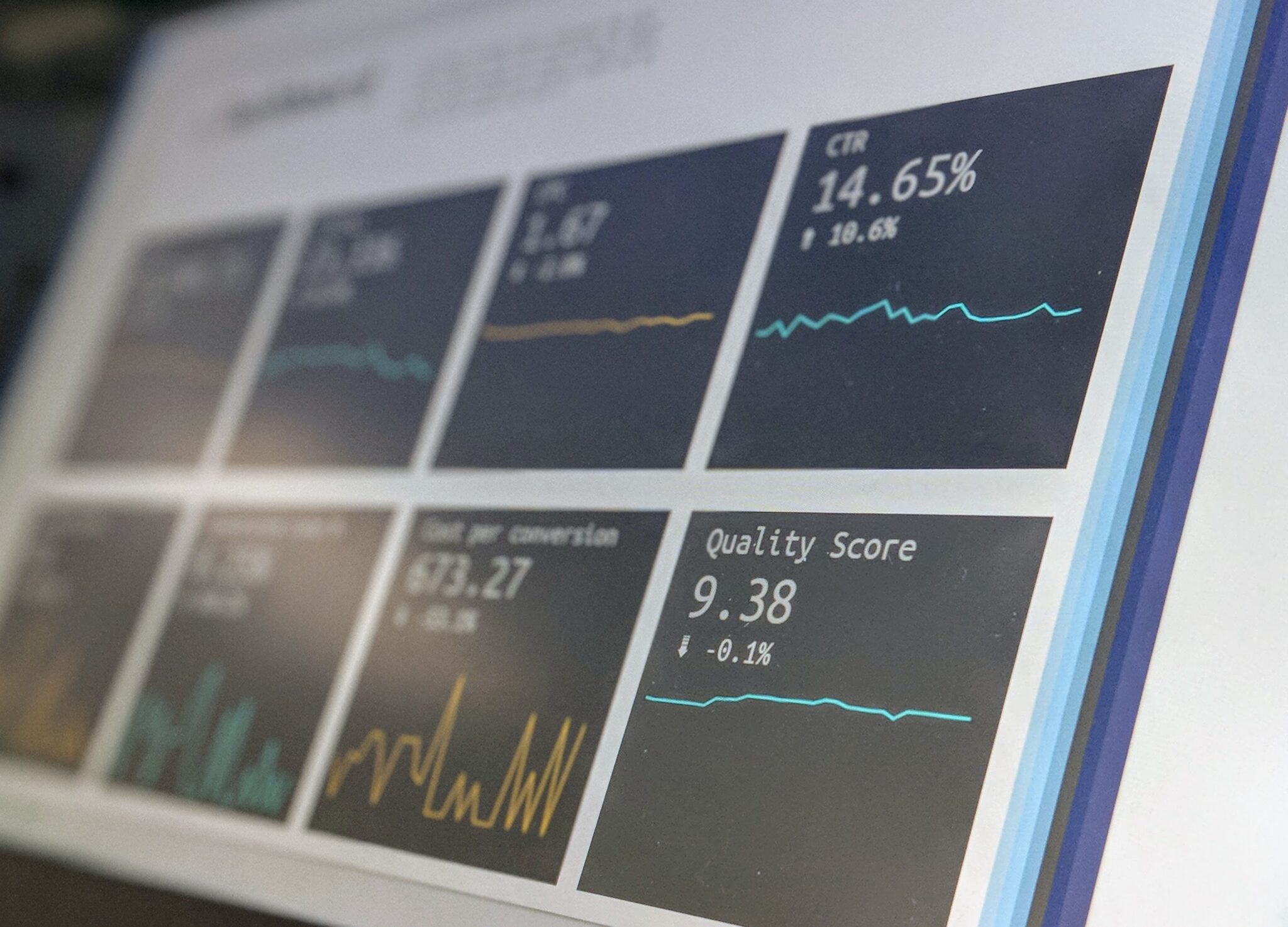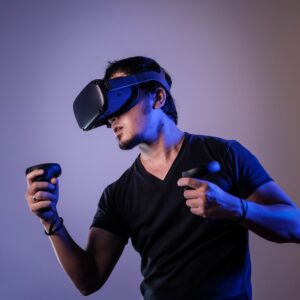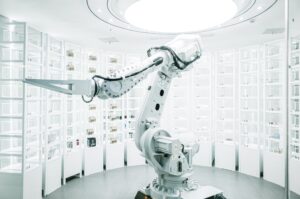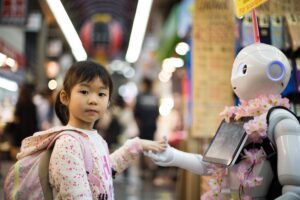
Hello there, fellow humans! Are you ready to delve into the world of AI applications? Buckle up! We’re about to take a wild ride into the future!
Artificial Intelligence (AI) is a rapidly evolving field that is transforming the world we live in. It’s not just a concept from science fiction movies anymore; AI applications have become a part of our daily lives, from virtual assistants to personalized recommendations. But that’s just the beginning!
In this section, we will explore the significance of AI applications in today’s world. We’ll also take a look at the practical and innovative AI applications that are emerging in various industries and explore how they are revolutionizing the way we live and work. Are you excited yet?
Let’s start by discussing the various areas where AI is being used. From healthcare to finance, from manufacturing to transportation, the potential of AI technologies is endless! And that’s just the tip of the iceberg.
So, get ready to discover the power of AI applications and the impact they are having on our world!
The Power of AI Applications
Artificial Intelligence (AI) is not just a buzzword anymore; it is becoming an essential part of our daily lives. From automating tasks to identifying patterns in data, AI technology has a lot of potential. Let’s take a closer look at the power of AI applications:
The Capabilities of AI Technologies
AI technologies are designed to analyze data, identify patterns, and make predictions based on that data. They can learn from past experiences and improve their performance over time. Machine learning, natural language processing, and computer vision are some of the most popular areas of AI that are being leveraged today.
With machine learning, AI systems can learn from data and make decisions and predictions without being programmed. This allows them to identify patterns in data that may be difficult or impossible for humans to see.
Natural language processing (NLP) is another area of AI that is becoming increasingly popular. NLP systems can understand and interpret human language and can be used in applications like chatbots and virtual assistants.
Computer vision is an area of AI that focuses on allowing computers to interpret and understand visual information from the world around them. This technology is being used in a wide range of applications, from facial recognition to self-driving cars.
The Potential of AI Applications
The potential of AI is vast and varied. Some of the most promising use cases for AI include improving healthcare, increasing efficiency in manufacturing, and enhancing fraud detection in finance. These are just a few examples of the many ways that AI can be used to solve real-world problems and improve our lives.
One of the most exciting aspects of AI is its ability to automate tasks that were previously done by humans. This can free up time and resources, allowing people to focus on more complex tasks that require human intelligence and creativity.
Overall, the power of AI applications lies in their ability to analyze data, identify patterns, and make predictions. As this technology continues to evolve, we can expect even more new ideas and practical applications to emerge. The potential for AI to evolve various industries is enormous, and we are only beginning to scratch the surface of what is possible.
Practical AI Applications in Everyday Life
AI isn’t just restricted to business applications. It has found a way into our everyday lives in more ways than one.
Let’s start with virtual assistants which have become a household name in the past few years. Thanks to AI, we can ask our digital assistants to do anything from checking the weather to setting reminders for important tasks. In fact, virtual assistants have become so much a part of our lives that we often forget they are powered by AI.
Another practical AI application that we have all encountered is personalized recommendations. Whether it’s Netflix suggesting a new show to watch or Amazon recommending a product, AI algorithms are at play behind the scenes, analyzing user behavior and preferences to make personalized recommendations.
Smart home devices are another area where AI is often used. From light bulbs to thermostats and security cameras, smart home devices are getting smarter by the day. AI-powered devices can learn your preferences and adapt to your lifestyle to make your life more convenient.
The Future of Practical AI Applications
With the rapid advancements in AI technology, we can only imagine what the future holds. We could see more AI-powered devices in our homes that can perfectly work with each other. We could see more personalized services, from healthcare to education, that are tailored to our individual needs. The possibilities are endless.
In the meantime, we can sit back and enjoy the benefits of practical AI applications that are already here, making our lives easier and more convenient.
The Power of AI Solutions in Industry
AI solutions have become a game-changer in numerous industries, improving traditional business models and drawing attention to outdated processes. Here are some examples of how industries are harnessing the power of AI:
Healthcare
AI applications in healthcare have brought about many improvements. In fact, they range from personalized treatment options to real-time patient monitoring. AI-powered devices, such as smart sensors and wearables, enable healthcare providers to monitor patients round the clock, ensuring timely intervention and reducing hospital stays. AI algorithms are also used to analyze medical records, identify unusual signs and recommend the best treatments.
Finance
The finance industry is no stranger to AI, with applications ranging from fraud detection to risk management. AI-powered chatbots are employed to provide customer support and service, freeing up human resources for more complex tasks. Machine learning algorithms are also used to predict market trends and identify investment opportunities, helping investors to make informed decisions.
Manufacturing
AI solutions are changing the manufacturing industry by improving efficiency, productivity, and safety. Machine learning algorithms are used to predict equipment breakdowns and suggest repairing them sooner, reducing downtime and maintenance costs. Robotics automation, powered by AI, helps manufacturers to streamline their operations and improve product quality.
As AI continues to grow and become more complex, it has the potential to transform industries beyond our current recognition. By harnessing the power of AI, businesses can unlock possibilities that were once deemed impossible.
Innovations in AI Applications
Artificial Intelligence technologies are advancing at an impressive pace. There’s no shortage of innovative AI applications shaping our world. Let’s explore some of the most exciting advancements in AI.
Machine Learning
One of the most significant breakthroughs in AI applications is machine learning. This technology allows machines to learn from data without being programmed specifically for it, allowing it to improve its performance over time.
With machine learning, computers can analyze vast amounts of data and make predictions based on that data. This technology is transforming industries like healthcare, finance, and marketing. Companies can now use machine learning algorithms to make more informed decisions.
Natural Language Processing
Natural Language Processing (NLP) is another exciting area of AI growth. NLP technology helps machines to understand and interpret human language, allowing for better communication between humans and machines.
NLP is being used in a wide range of applications, such as chatbots, voice assistants, and language translation services. The technology is constantly improving. We can expect to see even more sophisticated NLP applications in the future.
Computer Vision
Computer vision is the ability of machines to interpret and understand images and video. This technology has a wide range of applications, from self-driving cars to medical imaging.
Computer vision is being used to detect objects, recognize faces, and even detect emotions. As this technology continues to improve, we can expect to see more innovative applications in fields like security, entertainment, and retail.
These are just a few of the upcoming AI applications that are transforming our world. As AI technologies continue to advance, we can expect to see even more exciting advancements in the years to come.
The Future is Now: Exploring Emerging AI Applications
From autonomous vehicles to robotic surgeons, emerging AI applications have the potential to transform the way we live, work, and interact with each other. Here are just a few examples of these cutting-edge technologies:
Autonomous Vehicles
Self-driving cars have been in development for years, and we are now first seeing them hit the roads. Companies such as Waymo and Tesla are leading the way in this field. Their advanced AI algorithms enable cars to navigate roads and traffic without human input. As this technology continues to improve, it has the potential to reduce accidents, improve traffic flow, and even make car ownership a thing of the past.
Robotics
Robots are becoming increasingly prevalent in various industries, from manufacturing to healthcare. In the latter, robots are being developed to perform complex surgical procedures with greater accuracy and precision than human surgeons. As these technologies improve, we may see a shift towards more robotic-assisted surgeries, leading to better outcomes for patients.
AI-powered Healthcare
AI is being used to revolutionize healthcare in a variety of ways, from personalized treatment plans to early disease detection. Machine learning algorithms are being developed to analyze vast amounts of medical data. This leads to improved diagnoses and treatments. Additionally, chatbots and virtual assistants are being used to provide patients with 24/7 access to medical advice and support.
Smart Cities
Cities are also being transformed by AI technologies, with the concept of “smart cities” becoming increasingly popular. With sensors and other devices, cities can collect data on everything from traffic flow to air quality. AI algorithms can also be used to predict and prevent issues such as traffic jams and power outages.
Virtual Reality
Virtual reality technology is also being developed using AI algorithms, creating in-depth experiences and simulations. This has applications in fields such as education, training, and entertainment. In the future, we may see VR technology used to create realistic environments for remote work and collaboration.
Real-World AI Applications: Success Stories
AI applications are not just theoretical ideas anymore. They are being implemented in various industries across the world. They have already brought about remarkable success stories. Here are some examples:
Personalized Medicine
One of the most significant achievements of AI applications in the healthcare industry is the development of personalized medicine. Through analyzing DNA samples, AI algorithms can identify specific variations that can influence an individual’s response to a certain medication or treatment. This allows doctors to tailor medical treatment to the patient’s unique genetic makeup. This can lead to better outcomes and fewer side effects.
Fraud Detection
AI-powered fraud detection systems are helping financial institutions to detect and prevent fraud in real-time. These systems can analyze huge amounts of data in seconds. Then they identify patterns and anomalies that suggest fraudulent activity. This allows banks to stop fraud before it happens, saving millions of dollars and protecting their clients’ financial assets.
Predictive Maintenance
AI systems are being used to monitor and predict equipment breakdowns in manufacturing industries. By analyzing data from sensors in the equipment, AI algorithms can detect patterns that suggest a failure happening soon. This allows maintenance teams to schedule repairs before the equipment breaks down, reducing downtime and increasing productivity.
FAQ: Answers to Common Questions about AI Applications
Congratulations! You have made it to the FAQ section. But let’s get one thing straight – we are the ones asking the questions here. Let’s clear up some common queries about AI applications and put your mind at ease.
What are the ethical concerns surrounding AI applications?
As AI continues to advance, there is a growing concern about its impact on society. Some of the major ethical concerns include AI’s potential to perpetuate bias, invasion of privacy, and job displacement.
What about data privacy?
Privacy is always a touchy subject. With AI applications, the concern arises from their ability to collect and process vast amounts of data. However, measures are being taken to ensure that data privacy is respected. After all, we wouldn’t want our Alexa telling our deepest, darkest secrets to the world…
What is the future of AI applications?
The future of AI is looking very bright indeed. With the continued development of AI technologies, we can expect to see even more practical applications in the near future. From autonomous vehicles to personalized medicines, the possibilities are endless.
Can AI applications really replace human workers?
While AI may be able to perform certain tasks more efficiently than humans, it cannot replace the creativity, empathy, and critical thinking abilities of people. Rather than seeing AI as a threat to jobs, we should focus on how it can enhance our work and improve our quality of life. Who knows, maybe we’ll all be working alongside robots in the future. Talk about a unique office dynamic!
Are AI applications safe?
Like any technology, there are risks associated with AI. However, the development of safety standards and regulations is helping to ensure that AI applications are safe for use. Plus, we have to admit, it’s pretty cool to have a robot assistant that can make our lives easier…
Well, there you have it folks – all your burning questions about AI applications answered! We hope we’ve cleared up any confusion and put your mind at ease. Now go forth and embrace the wonders of AI technology!






